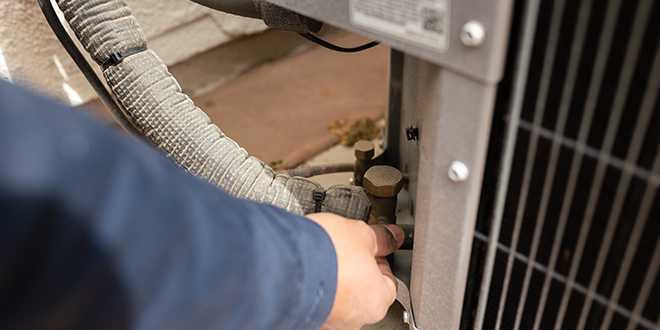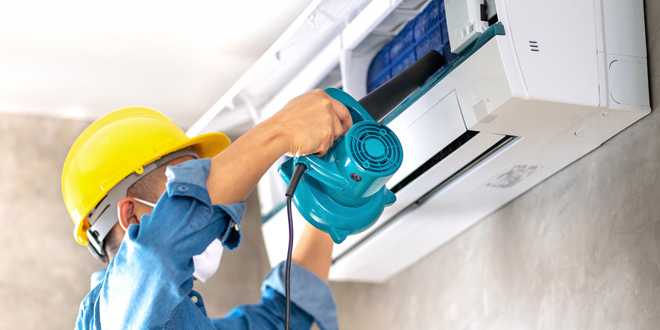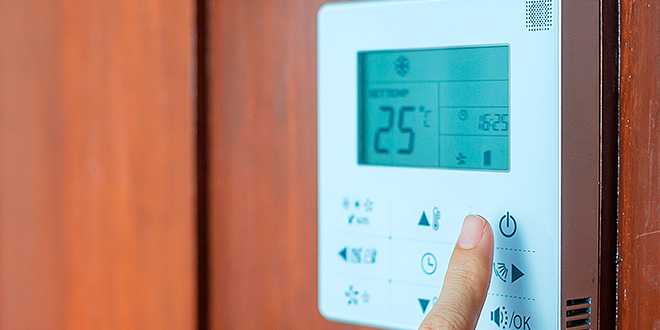
When summer temperatures rise, our reliance on air conditioning increases. However, this comfort comes at a cost. Energy-efficient air conditioning is not just about reducing your electricity bills; it also significantly impacts the environment by lowering greenhouse gas emissions. Understanding and improving your AC’s energy efficiency can lead to substantial savings and a more sustainable home.
Regular Maintenance: Keeping Your AC in Top Shape 🛠️
Regular maintenance is crucial for keeping your AC running efficiently. Routine inspections and tune-ups can prevent minor issues from turning into costly repairs. Key maintenance tasks include:
- Changing Filters: Dirty filters restrict airflow and force your AC to work harder. Replace them every 1-3 months for optimal performance.
- Cleaning Coils: Dust and debris on the evaporator and condenser coils reduce efficiency. Regularly clean these components to maintain smooth operation.
- Checking Refrigerant Levels: Low refrigerant levels can decrease efficiency and lead to system damage. Ensure the refrigerant is at the recommended level.
- Inspecting Ductwork: Leaky ducts can waste cooled air and increase energy consumption. Seal any leaks and ensure proper insulation.
For professional AC maintenance services, visit our AC Maintenance page.

Optimal Thermostat Settings: Balancing Comfort and Efficiency 📉
Finding the right thermostat settings can make a big difference in your AC’s energy efficiency. Here are some tips to balance comfort and savings:
- Summer Settings: Keep your thermostat at 78°F when you’re home and raise it a few degrees when you’re away.
- Winter Settings: Set your thermostat to 68°F while you’re awake and lower it while you sleep or are away from home.
- Programmable Thermostats: Invest in a programmable thermostat to automatically adjust temperatures based on your schedule, saving energy without sacrificing comfort.
- Smart Thermostats: Smart thermostats offer advanced features like remote control via smartphone apps and learning your schedule to optimize settings automatically.
For more information on installing energy-efficient thermostats and upgrading your AC system, check out our AC Installation page.
Upgrading Your AC Unit: When It’s Time to Invest 💡
Sometimes, the best way to improve energy efficiency is to upgrade your AC unit. Here are signs that it might be time for a new system:
- Frequent Repairs: If your AC requires constant repairs, investing in a new unit could be more cost-effective in the long run.
- Age of Unit: AC units typically last 10-15 years. If yours is older, newer models offer significantly better efficiency.
- Rising Energy Bills: If your energy costs are increasing without a change in usage, your AC might be losing efficiency.
- Inconsistent Temperatures: Struggling to maintain a consistent temperature can indicate your AC is no longer performing optimally.
Modern AC units are designed with advanced technology to maximize energy efficiency and reduce operating costs. For professional guidance on choosing and installing a new, energy-efficient AC system, visit our AC Installation page.

Insulation and Sealing: Keeping the Cool Air In 🔒
Proper insulation and sealing are vital to maintaining your home’s indoor temperature and improving your AC’s efficiency. Here are some tips:
- Insulate Your Home: Ensure your home is well-insulated, especially in the attic and walls, to prevent cool air from escaping and warm air from entering.
- Seal Windows and Doors: Use weather stripping and caulk to seal gaps and cracks around windows and doors. This prevents air leaks and helps your AC work more efficiently.
- Install Insulated Curtains: Insulated or blackout curtains can block out heat during the day and help keep your home cooler.
- Check Ductwork: Ensure your ductwork is properly sealed and insulated to prevent air loss, which can account for significant energy waste.
Proper insulation and sealing can dramatically improve your AC’s performance, reducing energy usage and lowering your bills. For professional AC maintenance and inspections, visit our AC Maintenance page.
Using Fans and Ventilation: Enhancing Air Circulation 💨
Fans and proper ventilation can significantly boost your AC’s efficiency by enhancing air circulation. Here’s how to make the most of them:
- Ceiling Fans: Use ceiling fans to circulate cool air throughout your home. This can make rooms feel cooler, allowing you to raise the thermostat a few degrees without sacrificing comfort.
- Portable Fans: Place portable fans in key areas to help distribute cool air more evenly.
- Exhaust Fans: Use exhaust fans in kitchens and bathrooms to remove heat and humidity, reducing the load on your AC.
- Ventilation: Ensure your home is well-ventilated to prevent heat buildup. Consider opening windows during cooler parts of the day or using attic fans to expel hot air.
By using fans and optimizing ventilation, you can reduce your reliance on the AC and save energy. For more information on maintaining your AC for maximum efficiency, visit our AC Maintenance page.

Energy-Saving Tips and Tricks: Small Changes for Big Savings 💡
Implementing a few simple energy-saving habits can make a significant difference in your AC’s efficiency. Here are some tips and tricks:
- Close Blinds and Curtains: During the hottest parts of the day, close blinds and curtains to block out sunlight and reduce heat gain.
- Use Energy-Saving Curtains: Invest in thermal or blackout curtains to keep your home cooler.
- Adjust the Thermostat: Raise the thermostat by a few degrees when you’re not home or at night to save energy.
- Use Fans Wisely: Use ceiling and portable fans to enhance cool air distribution, allowing you to set the thermostat higher.
- Avoid Heat-Generating Appliances: Limit the use of heat-generating appliances like ovens and stoves during peak heat hours.
- Seal Leaks: Ensure windows and doors are sealed properly to prevent cool air from escaping.
These small changes can lead to significant energy savings and improve your AC’s overall efficiency. For more tips on maintaining and enhancing your AC system, check out our AC Maintenance page.

Conclusion: Stay Cool and Save Money 🌬️
Improving your AC’s energy efficiency is a smart move for both your wallet and the environment. By following these tips—regular maintenance, optimal thermostat settings, upgrading your unit when necessary, ensuring proper insulation, utilizing fans and ventilation, and adopting simple energy-saving habits—you can keep your home comfortably cool while reducing energy consumption and costs.
Remember, a well-maintained and efficiently running AC system is key to staying cool during the hot months without breaking the bank. For expert advice, maintenance, repairs, or new installations, reach out to the professionals at All Heart Heating & Cooling. Visit our AC Repair page, AC Installation page, or Contact Us today!




